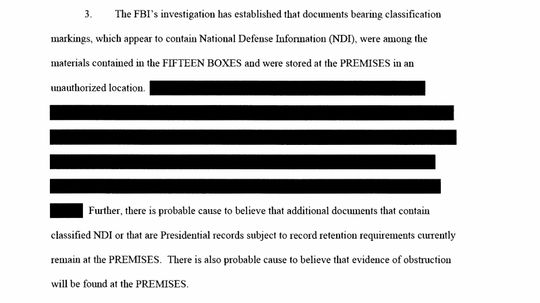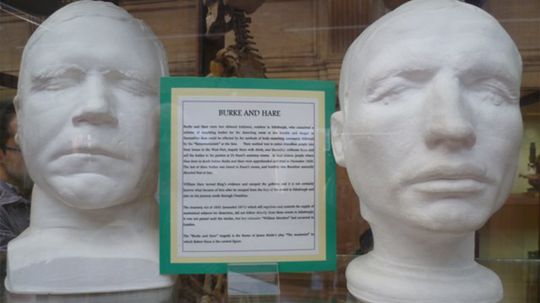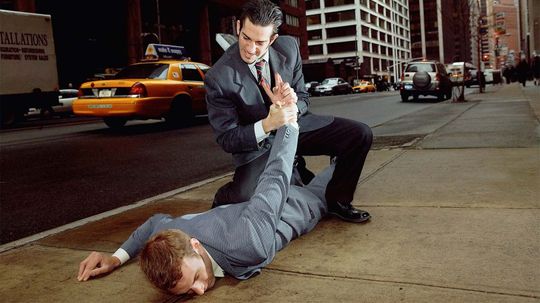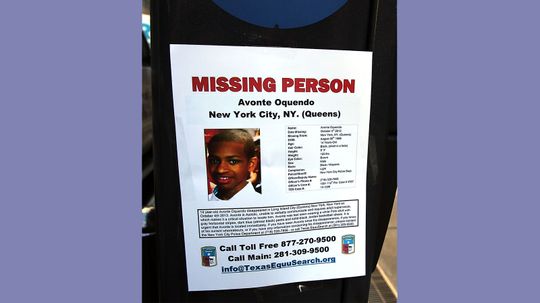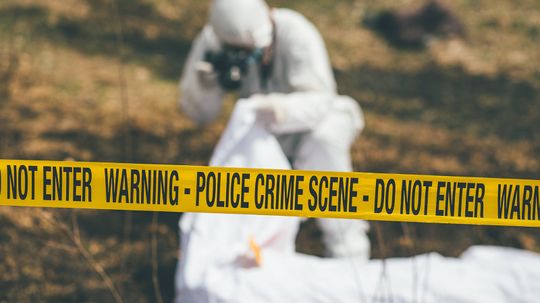Legal System
The Legal System Channel features information related to how society deals with crime, criminals and law enforcement. Learn more about how governments operate their legal systems.

Determining the Worst School Shooting by Fatalities
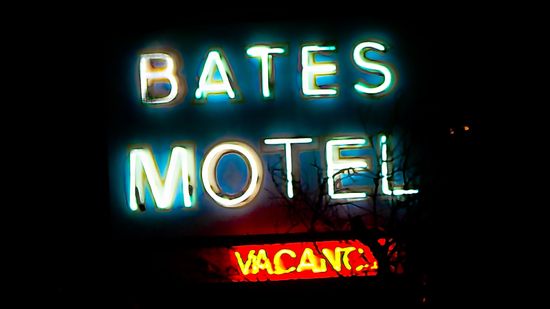
Ed Gein, Inspiration for 'Psycho,' Never Served Prison Time

10 States With the Highest Crime Rates

10 States With the Strictest Abortion Laws After Roe v. Wade Was Overturned

What Is the Youngest Drinking Age in the World?

31 Open Carry States and 10 With 'Permissive' Open Carry

How the 2021 Astroworld Tragedy Changed the Festival Scene
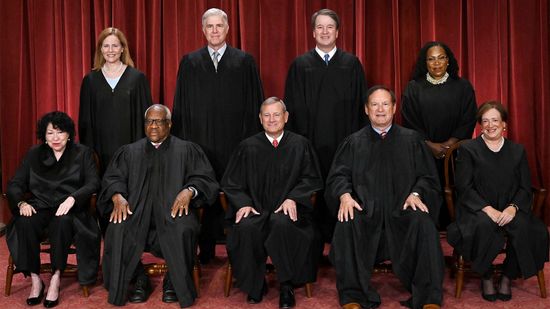
Supreme Court on the Brink of Ending Affirmative Action in College Admissions

Are Skittles 'Unfit for Human Consumption'? A Lawsuit Says Yes
Learn More / Page 4
The National Neighborhood Watch Program was originally established in 1972 as a local response to neighborhood crime. How has the idea evolved over time?
Forgery is one of the most difficult crimes to successfully carry off. But these six sure tried. What tripped them up?
The food we're feeding those incarcerated in the U.S. prison system is not only bad for their health, but it's also bad for John Q. Taxpayer's wallet.
By John Donovan
Advertisement
You probably don't know her name, but Mitsuye Endo was the plaintiff in the landmark lawsuit that ultimately led to the closing of the U.S. Japanese internment camps after the bombing of Pearl Harbor.
The U.S. Justice Department had to release a redacted affidavit related to the FBI's search of former President Donald Trump's Florida estate. How does the redaction process work?
A new serial podcast delves into the tragic deaths of at least six members of the Hart family, whose SUV was driven off a cliff in California in early 2018.
Cursing during road rage? A ton of trash in your car? Both can get you in trouble if you're not careful. What other crazy driving laws are on the books?
Advertisement
The Constitution allows Supreme Court justices to be impeached by the House and put on trial by the Senate, but it's only happened once and that was in 1805.
One out of every six American women has been the victim of an attempted or completed rape, and many are afraid to or don't know how to report it.
Police and fire departments across the U.S. are eliminating jargon like "10-4" in favor of every-day vernacular. And there's a good reason why.
William Burke and William Hare cut out the middleman in the early 19th-century Scottish grave-robbing game.
Advertisement
Omarosa did it, but does that mean you can too - legally that is? A lot depends on which state you live in.
By Dave Roos
Ordinary citizens are allowed to make arrests in every U.S. state, but legal experts warn that it's a risky thing to do.
Political ideology serves as a motivator for some people to commit espionage, but it's not the only factor at play when someone decides to spy.
In the vast majority of cases, a child, parent, spouse or friend who goes missing returns home unharmed. But if they don't, would you know what to do first?
By Dave Roos
Advertisement
Stand Your Ground laws are controversial and exist in nearly half the states in the United States. But what exactly are they?
An active shooter situation at work may not be common, but you should really know how you'd handle it before it happens.
By Dave Roos
Psychics often try to help police solve crimes, but how many times are they really successful?
By Diana Brown
President Donald Trump says if the U.S. just deports members of the MS-13 gang, the country will be much safer. But is it really that simple?
By John Donovan
Advertisement
From public letters to anime porn, the 470,000 public files offer a window into the last years of al-Qaida mastermind Osama bin Laden.
By Diana Brown
Where do we draw the line between interesting and appalling?
By Diana Brown
The conviction of 80-year-old Bill Cosby on aggravated indecent assault charges raises the question of how sentencing works in the case of an elderly defendant.
The Mann Act was passed in 1910 and even though it's been used legitimately, it's also been abused to nab men of color like Jack Johnson and Chuck Berry.
By John Donovan
Advertisement
High-profile cases over the past few years have shown the benefits - and pitfalls - of asking the public to report any suspicious activities they notice to the police. When does that tip over into racial or ethnic bias?
By Dave Roos
Drug courts have changed the lives of the thousands of people who've "graduated" through the program. But how exactly do the judges, rehab facilities and counselors facilitate these courts, and do they deter repeat offenders?




